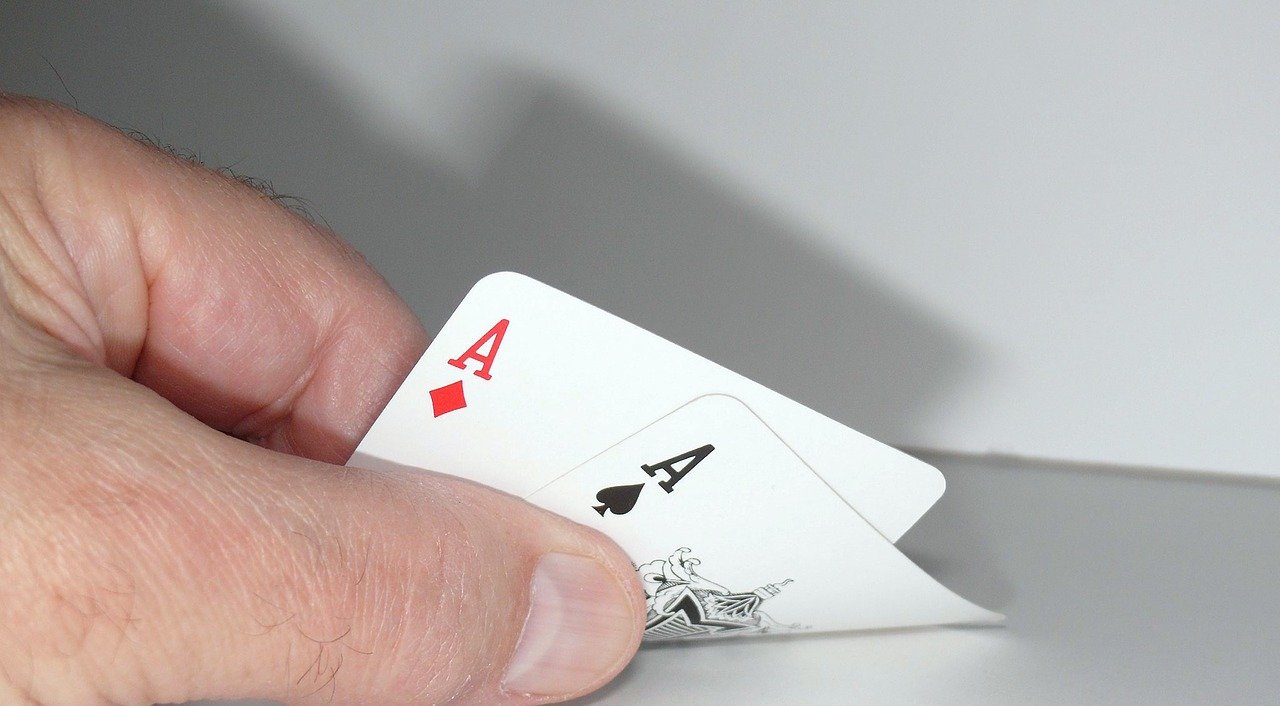
- Title:Blackjack Guide: How To Play Blackjack
- Created at: 17 August 2025
The popluarity of blackjack stems from its unique combination of chance and skill. The object of the game is to form a hand closer to 21 than the dealer without going over.
Card Values
Face cards (Jack, Queen and King) are worth 10. Cards 2 through 10 retain their face values.
Aces are worth 1 or 11, depending on the hand. Any time an Ace can be used as either 1 or 11, it is called a soft hand. Any time an Ace must be used as 1 (or it would force your hand to exceed 21), it is called a hard hand.
Playing Blackjack
Players place a wager in their corresponding circle. The dealer then waves a hand over the table, closing all bets. Once the first card is placed on the table, all original bets must remain the same until the conclusion of the hand. Two cards are dealt face-up to each player, and two cards (one face-up, one face-down) are placed in front of the dealer. The card dealt face down is known as the dealer hole card.
What is a Blackjack
A hand of Ace and any 10-value card with the original two cards is called blackjack; it pays 3 to 2 (win $15 on a $10 bet).
The Hitting Round
Players can improve their hands by taking additional cards; this is known as hitting. If a player wants an additional card, they make a scratching motion behind or beside the betting area. A player may take cards until satisfied or until the hand exceeds 21—that is called a break. Once a player decides to stand (no more cards), a horizontal hand motion is made above their wager.
Important note: Dealers are not allowed to take verbal commands when addressing hands; a hand signal over the table must be given by each player.
End Game
Once all players complete their hands, the dealer reveals the hole card, placing both cards face up. The dealer draws until a total of hard 17 or better is achieved. The dealer is required to hit a soft 17 or less regardless of players’ hand values. If the dealer breaks, all remaining hands win and are paid even money. If the dealer hits to a total of hard 17 or better, hands closer to 21 than the dealer win. Hands totaling less than the dealer lose. If the dealer and player have the same total, the result is a push: no one wins, no one loses.
Important note: The player loses if the dealer has blackjack and the player has a total of 21, which is not blackjack.
Insurance
If the dealer’s up-card is an Ace, players are offered insurance. Insurance is an additional wager betting that the dealer does indeed have blackjack. A player may wager up to half of the original bet by placing cheques on the Insurance Line. At this time, any player dealt blackjack can immediately be paid dollar for dollar on their wager by saying “even money,” regardless of the dealer hole card.
The dealer then closes insurance with a hand signal and checks the hole card. If the dealer does indeed have blackjack, insurance pays 2 to 1, and the hand is over. If the dealer does not have blackjack, the insurance wager loses and the hand continues.
How to Split in Blackjack
If a player’s first two cards are of equal value, the player has the option of splitting them to create two separate hands. When splitting, an additional wager equal to the original bet must be made, and a hand signal (two fingers spread apart) must be given to the dealer. The player will play the first hand until satisfied, give a stand hand signal, and then complete the second hand. When splitting Aces, the player receives only one card for each hand.
Important note: When a split results in a hand consisting of a 10-value card and Ace, the value now counts as 21 since blackjack is only possible on the two original cards.
How to Double Down in Blackjack
A confident player may wish to double down by making an additional wager up to the amount of the original bet. Doubling down can be done on any two-card combination, except on blackjack and split Aces. A player taking this option receives only one more card for the hand. All other rules apply.
And those are the basics of blackjack.
If you like blackjack, you might want to try Double Deck Pitch. It plays much like regular blackjack except the dealer operates with two decks of cards in-hand and the cards are dealt face-down.
Blackjack Helpful Hints
- Players are not allowed to touch the cards.
- Suits are of no significance.
Blackjack Side Bets
21+3 and Top 3
Now offering two bets for the price of one! Place a 21+3 wager and you’ll also receive a Top 3 wager. Make a qualifying 21+3 and Top 3 hand from your two cards and the dealer’s up-card:
21+3 Payouts
| Hand | Pays |
| Straight Flush | 9 to 1 |
| Three of a Kind | 9 to 1 |
| Straight | 9 to 1 |
| Flush | 9 to 1 |
Top 3 Payouts
| Hand | Pays |
| Three of a Kind | 90 to 1 |
| Straight Flush | 180 to 1 |
| Three of a Kind Suited | 270 to 1 |
An Ace-Two-Three sequence wins. However, an Ace may not be combined with any other sequence of cards for purposes of determining a winning hand (for example, King-Ace-Two). Once all 21+3 Top 3 wagers and winnings have been removed from the layout, all Blackjack house rules will apply.



